Albert Einstein once said, “In the middle of difficulty lies opportunity.” Forrest Keeling Nursery has lived through difficult times and found many opportunities to grow stronger and create better ways.
Over more than seven decades, Forrest Keeling Nursery repeatedly met its own challenges from natural disasters and parlayed them into novel technologies to grow trees faster and restore lost habitat. They continued to develop their RPM-production technology into a way to live their mission, “to restore the earth’s ecosystems one tree at a time.” Their patented RPM-production methodology changed how wetland scientists and land managers approach restoration, bringing vital renewal to devastated landscapes.
This rapid restoration success was due to how plants and their planting sites react to RPM’s all-natural technology. RPM technology creates dense, fibrous roots that afford 2X faster growth with earlier flowering and fruiting. Forrest Keeling’s proprietary living media takes microorganisms to its planting site, which in turn improves the planting site’s microbiome. All this leads to unsurpassed success in tree establishment and earlier regeneration.
RPM-production success includes restoring over 320,000 square miles of the Mississippi River bottomland forest lost during the historic floods of 1993. This restoration has reestablished critical erosion control and wildlife habitat and set new standards in environmental restoration for conservation remediation and wetland restoration projects.
Another Midwest example is a special collaboration between Forrest Keeling and the Cedar Rapids’ Monarch Research Project. The Nursery seldom has a job that allows us to work so directly with citizens as we’ve enjoyed with the Monarch Research Project.
On August 10, 2020, a strong, widespread storm—a derecho—devastated the Midwest. Iowa saw hurricane-force winds damage 340 communities in 27 counties. Cedar Rapids alone suffered over 8,000 homes damaged. The city lost nearly one million trees–over 50% of its tree canopy.
When that much native habitat is lost, wildlife suffers. Declining monarch butterfly populations plummeted due to the loss of food supply and habitat, and other important pollinators also experienced a similar decline.
As a group, pollinators are vital to Iowa’s crop success worth billions each year. Beyond the economics of crop success, caterpillars are critical to Earth’s biodiversity. Birds, amphibians, reptiles, other insects, and even mammals depend on the quality of protein they provide. Caterpillars underpin the entire food web. Without them and the nutrition they provide, we would lose many of our higher animals.
Bringing the Iowa landscape back to normal will take time. However, the people behind the Monarch Research Project knew how important it was to act quickly and with a plan. In its first two years, MRP led area homeowners in the installation of over 75,000 container-sized native Iowa trees. Each tree was grown with Forrest Keeling’s patented RPM-production technology. We hope MRP will be a model for other communities that want to restore nature in their corner of the world.
Other significant projects for Forrest Keeling include:
- Gulf Shore Restoration following 2005 Hurricane Katrina,
- Reforestation of Beijing Environs before 2008 Olympics, and
- CityArchRiver landscape renovation project in nearby St. Louis, Missouri.
From projects close to home to those throughout the world, Forest Keeling has helped customers meet challenges. Whether your community has experienced devastating tree loss through disaster or wants to nurture and expand its urban forest canopy, Forrest Keeling can help. Contact us for recommendations and information on RPM native plant availability for your next project.
